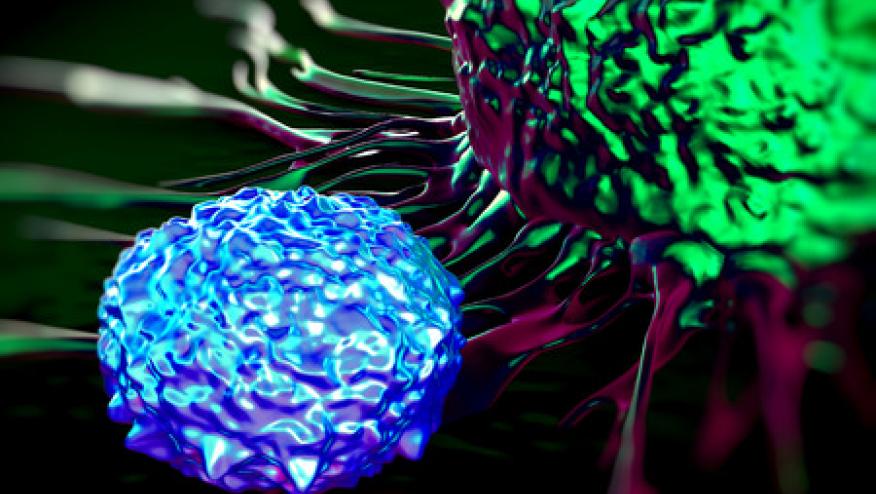Update on Immune Checkpoint Inhibitor Toxicity Save

JAMA has a 2018 update/review of the safety issues seen with mmune checkpoint inhibitors (ICIs) - important new cancer therapies, with 14 cancer indications, that have significantly improved survival in several. ICIs are monoclonal antibodies that block inhibitors of T-cell activation and function.
ICIs block cytotoxic T lymphocyte antigen 4 (CTLA-4; ie, ipilimumab), programmed death 1 (PD-1; ie, nivolumab, pembrolizumab), or programmed death ligand 1 (PD-L1; ie, atezolizumab, avelumab, durvalumab).
Immune checkpoints on T cells normally prevent autoimmunity by inhibiting dendritic cell-mediated T-cell activation (CTLA-4) or by inducing T-cell exhaustion at sites of inflammation (PD-1/PD-L1). By removing inhibition of T-cell function, ICIs facilitate T-cell–mediated actions on tumors but in doing so they may promote T-cell autoimmune activity against host tissues. As such ICIs have been associated with numerous examples of organ-specific inflammation, and autoimmune events described within this review.
Autoimmune AEs associated with anti–CTLA-4 regimens occur earlier, more frequently, and are more severe than autoimmune AEs associated with anti–PD-1/PD-L1 monotherapy. Thus will AE arise acutely, they may respond to steroids within 1 to 7 days. Low-dose steroids (prednisone, 0.5 mg/kg) are generally used for mild AEs and high dose glucocorticoids (1-2 mg/kg) for more severe AEs. AEs may reappear after discontinuation of steroids in approximately 10% of patients, and cause hospitalization in 5% (anti-PD-1 monotherapy) to 36% (combination anti-CTLA-4/anti-PD-1) of patients. Steroid nonresponders should be considered for second-line immunosuppression, such as infliximab or mycophenolate mofetil.
Common manifestations of immune-mediated adverse events with ICIs include:
- Colitis: occurs 25% of patients treated with ipilimumab and < 5% of patients treated with anti–PD-1/PD-L1 monotherapy. Colitis may be life-threatening or mild watery diarrhea. Colonoscopy, steroids and even biologic therapies may be necessary.
- Pneumonitis: also potentially life-threatening, may be seen in 2% to 5% of patients treated with ICIs. Symptoms may prompt evaluation with computed tomographic imaging - revealing ground glass opacities and/or interstitial thickening, High-dose steroids (1-2 mg/kg/d) are indicated in symptomatic patients.
- Cutaneous: up to 30% of patients treated with ICIs and include pruritus, acneiform rash, and toxic epidermal necrolysis. Blisters or mucosal involvement are rare (<1%) but suggest a bullous disorder or Stevens-Johnson syndrome and require prompt dermatology evaluation and high-dose steroids.
- Endocrine Dysfunction: Hypophysitis (pituitary inflammation) is one of the more common AE with anti–CTLA-4 therapy (up to 10% incidence), but is rarely seen with other ICIs. Patients with hypophysitis present with signs and symptoms of adrenal insufficiency, such as hypotension and fatigue and headaches. Hypothyroidism occurs in up to 20% of treated patients, is often preceded by asymptomatic inflammatory thyroiditis, and requires thyroid hormone replacement. Hyperthyroidism is less common, may be transient and followed by hypothyroidism.
- Hepatitis: seen in 1% of patients prescribed anti‐PD1/PD‐L1 agents and 10% of patients prescribed anti-CTLA-4 agents.
- Myocarditis and myositis: inflammatory myocarditis occurs in less than 1% of patients treated with ICIs, often presents with concurrent skeletal muscle myositis, may be fulminant or smoldering in nature, and has a 20% to 50% risk of death. Patients with myocarditis present with fatigue, shortness of breath, chest discomfort, and troponin elevations and conduction disturbances.
- Neurotoxicity: tends to be rare (<1% of patients treated with ICIs) but severe neurotoxicities include Guillain-Barré syndrome, myasthenia gravis, and encephalitis.9 Guillain-Barré syndrome and myasthenia gravis require prompt disease-specific management










If you are a health practitioner, you may Login/Register to comment.
Due to the nature of these comment forums, only health practitioners are allowed to comment at this time.